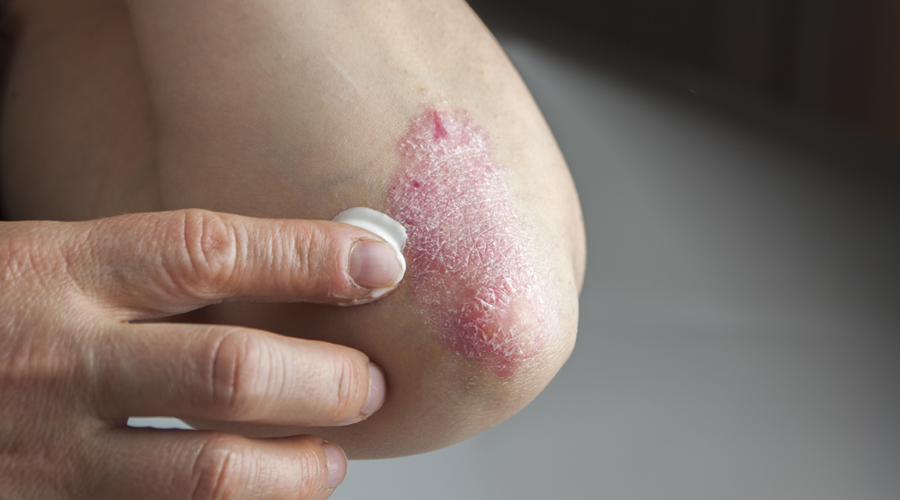 By Dr. David Powell
By Dr. David Powell
Psoriasis is a common condition in the US with nearly 3 million cases annually. If you are wondering if you may be one of those, the first sign would be a rash on the skin. That rash can grow larger and develop scaly dry skin on top, especially when left untreated. This common disease varies significantly in severity from person to person, some people only get the occasional rash while others may have to deal with it covering large areas of their bodies.
The Causes
The cause has been linked to a person’s immune system, with triggers varying from infections, stress, or cold, to injuries to the skin from vaccinations, sunburns or even just scratches. Most of the time it just affects the skin, but sometimes the rash can involve the nails or joints.
Solutions
Luckily over the last 20 years, there has been a lot of science conducted on Psoriasis to help find treatments and a cure. Although there isn’t a cure yet, there are many different treatments available for people depending on the severity of their situation. To date, treatments are aimed at removing the scales and slow skin cells from growing so quickly. From topical ointments, to light therapy, and medications, rest assured there is a relief!
Breakdown of Treatment Options
Topicals are our first line of defense for milder cases and are applied to the skin and are often the first treatment recommended to a newly diagnosed person. Topicals can be purchased over the counter or by prescription.
Systemics are prescription drugs that are taken orally or by injection and work throughout the body. Systemics are typically prescribed for moderate to severe psoriasis and psoriatic arthritis.
Biologics or Biologic drugs are typically prescribed for moderate to severe psoriasis and psoriatic arthritis that has not responded to other treatments. Biologics are given by injection or intravenous (IV) infusion. I have seen tremendous success with Biologics over the years with my more severe patients. You must be monitored by a physician when choosing this option.
Phototherapy is a light therapy that involves exposing the skin to UV light on a pre-determined schedule under medical supervision in a doctor’s office, clinic, or at home with a phototherapy unit. Laying in the sun is not equivalent! Although our office doesn’t have a unit, it’s an effective treatment, and if we find that you need it, we work closely with other clinics in the area that can provide it.
 Which option is right for me?
Which option is right for me?
The only way to know which of these treatments is right for you is to come in for a medical evaluation. I will diagnose and work with you to figure out your triggers, the right course of therapy or medication, and help you get your psoriasis under control. I think of this as a partnership in managing this disease over the long-run, and nothing makes me happier than seeing my patients confident and feeling their best!
If you are suffering from this disease or suspect you may have it, schedule an appointment to come in and see me. These visits are often covered by insurance and only take 30 minutes of your time. Hope to see you soon!
You can also visit the Psoriasis Resource Center on AAD.org here.

Dr. Powell has been practicing dermatology since 2001 and joined SBA dermatology earlier this year. He graduated from Tulane University School of Medicine in 1993 after receiving a full scholarship from the United States Navy. Dr. Powell completed his internship in Internal Medicine at Naval Medical Center, Portsmouth, Virginia, and his United States Naval Flight Surgeon training at Naval Air Station, Pensacola, Florida… Read his full bio here.


 Which option is right for me?
Which option is right for me?